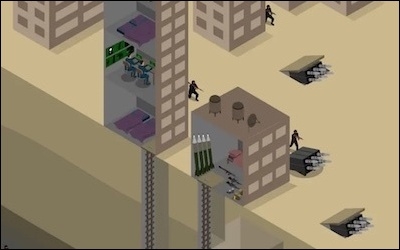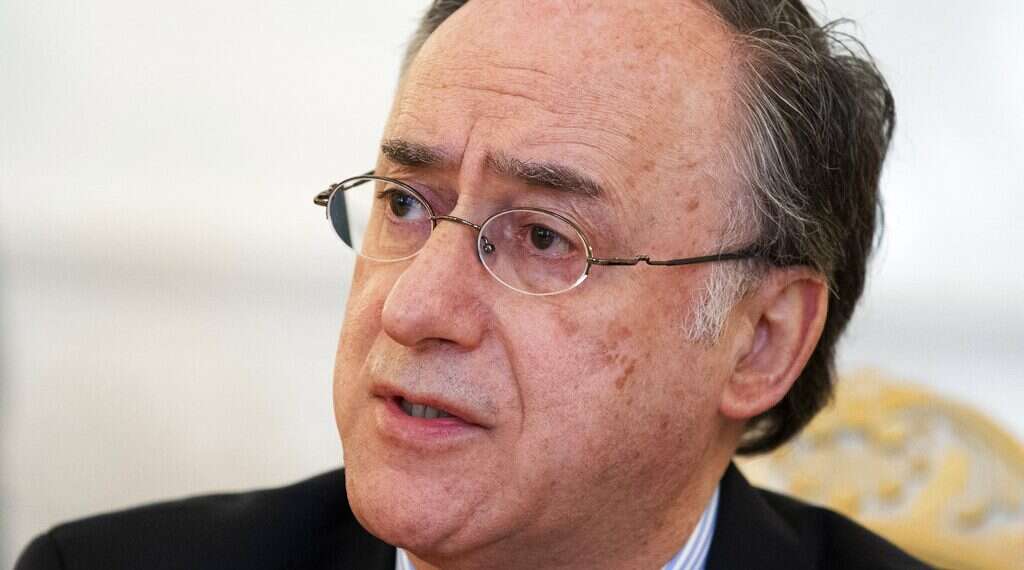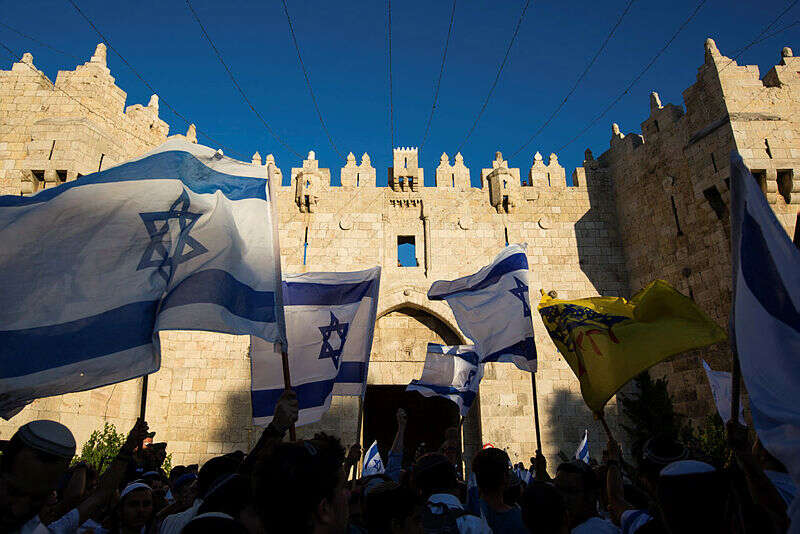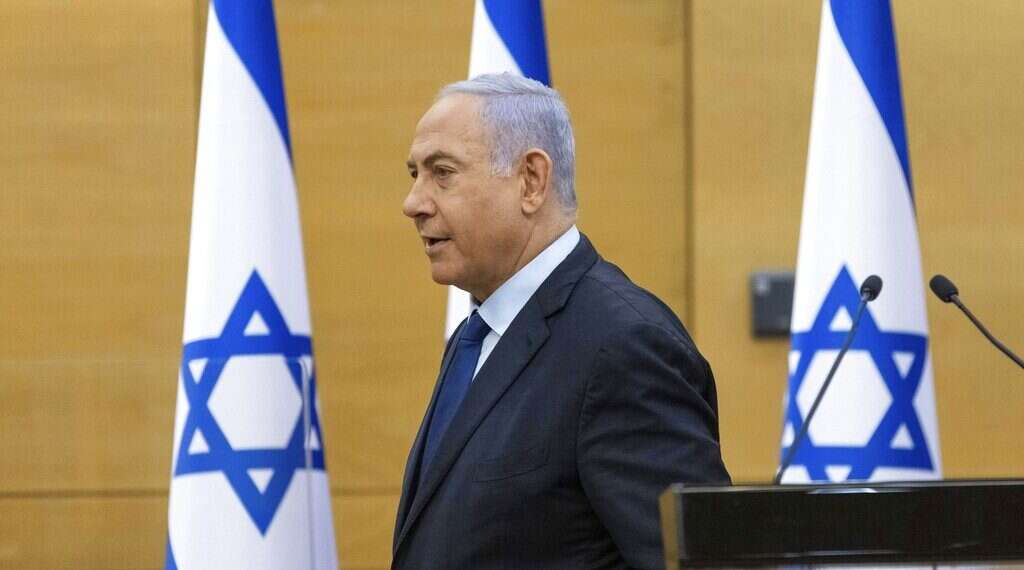by Seth J. Frantzman
Destruction of the Metro was a strategic defeat for Hamas, setting it back many years.
Originally published under the title "How Israel Targeted Hamas Underground (And What It Could Do Next)."
 Hamas built more than 100 km of tunnels underneath the Gaza strip, enabling it to move rockets around underground and coordinate mass barrages through centralized command and control. [IDF] |
In eleven days of fighting in mid-May, Israel used precision airstrikes to try to damage Hamas infrastructure in Gaza and handed the militant group a blow that it will take years to recover from.
The goal was not to target large numbers of Hamas low-level fighters, but rather its strategic underground tunnels and infrastructure that enable it to move around masses of rockets that it has used to target Israel. More than 4,300 rockets were fired at Israel and Israel's advanced Iron Dome air defense system intercepted most of the rocket threats to Israel's cities.
In an interview with the head of the Israel Defense Forces (IDF) southern command underground department, which played a key role in the recent conflict, the IDF sketched out how it went about targeting Hamas. This was a unique operation against what Israel calls the "Metro" in Gaza, a series of underground tunnels that link more than 100 kilometers beneath the Gaza Strip. It should be noted the Gaza Strip is only 41km long and between 6 and 12km wide which means that the underground tunnel system was not only extensive but crisscrossed areas underneath the civilian buildings that make up a large swath of the Gaza Strip. The area is festooned with low-rise buildings and towns and villages, making it one of the more crowded areas in the world.
While militaries in the past have faced underground tunnel networks and obstacles, from the Maginot Line to the Vietcong tunnel systems, Israel's challenge was made more complex by the presence of so many civilians. Over the years Israel has created a method for overcoming this concern, knowing that there is intense international pressure to avoid civilian casualties. These casualties occur in similar war, such as the U.S.-led Coalition bombing of the Al Jadeeda neighborhood in Mosul in March 2017 that led to more than 100 deaths.
Israel has confronted this challenge in the past and in 2009 and 2014 there are large numbers of civilian casualties, as well as large numbers of casualties among Hamas fighters. Both those wars involved a ground incursion. Israel changed tactics after 2014 and there have been fewer conflicts with Hamas. However, there were flare-ups in 2018 and 2019 that saw hundreds of rockets fired at Israel in multi-day clashes. Israel's tactic of precision airstrikes and warnings to occupied buildings reduced the casualties in those clashes to near-zero. That is also the method Israel used in airstrikes in Syria, of which there have been thousands against Iranian targets since 2015. There have been few civilian or military casualties in those extreme precision strikes. In Gaza, Israel used its JDAM munitions, acquired from the United States, as well as its extensive surveillance network of aircraft and other systems. Israel doesn't specify which aircraft or UAVs it may have used during the conflict.
"The way the Metro was built is they have logistics and through that they build the whole Metro, you can see it from visuals and every aircraft that goes into the air that takes footage you can learn a little bit about where they build," said the IDF officer whose name cannot be used for security reasons. Hamas constructed shafts into the ground with concrete to be used during the fighting. The shafts frequently are built underneath houses and Israel says that it attempted to strike the underground system usually by hitting areas that were along streets or other open areas, so as not to destroy civilian homes. Israel weighed the relative gain by hitting the buildings compared to the harm it would do to civilian infrastructure.
The underground system, according to the officer, links various villages and towns and Gaza city. "It is all connected underground," he says. "[What] we strike are the main places we know they have more military use out of it and that is the places we preferred to focus on." The Metro system enabled Hamas to launch barrages of long-range rockets, sometimes more than one hundred at a time. According to Iranian media during the recent conflict, Hamas had tried to overwhelm Israel's air defenses with these saturation rocket launches. The IDF says that after it embarked on its campaign against the Metro Hamas was less effective in targeting Israel's cities such as Tel Aviv.
The major campaign against the Metro began on Friday, May 14, with some 160 aircraft hunting down 150 targets in a night-long air campaign. As recently as February 2021, the IDF had drilled to strike up to 3,000 targets in a twenty-four-hour period. This means the campaign in Gaza was only a small example of the firepower the IDF could unleash using advanced fifth-generation jets like the F-35 stealth fighter. This comes in the context of growing tensions between Israel and Iran and Iranian proxies in the region, such as Hezbollah.
When it comes to Hamas, the decision to strike at the Metro tunnel system builds on past campaigns that confronted other Hamas threats. For instance, in 2014 Israel targeted Hamas tunnels that stretched from Gaza into Israel. Israel then constructed a unique sensory barrier underground and above ground to prevent Hamas tunneling under the border. Israel has also struck Hamas frogmen and various naval units, including an unmanned submarine in this recent war. The IDF has had to contend with Hamas ATGM units as well as cyber warfare units and now drones. The Iron Dome system downed Hamas drones for the first time in this conflict.
The importance of demolishing the Metro system was to prevent Hamas from being able to easily move rockets around underground and set up the mass barrages that can be coordinated and linked to centralized command and control. In the past, Hamas often fired several rockets at a time from less sophisticated trucks and other methods. However, Iran has perfected the use of new precision missiles and also the hiding of rockets, such as the 107mm and 122mm used by militias in Iraq, so that they can be timed and fired at a location. Hamas rockets are now much larger, including some that can reach 250km.
Destruction of the Metro was a strategic defeat for Hamas, setting it back many years. |
"This [Metro] is a system they have been building for about ten years. In the 2014 war we didn't focus on this system. It wasn't as effective and they didn't have as much back then," says the IDF officer. Israel considers the system a Hamas strategy and as such demolishing it is a strategic defeat, not just a tactical one for Hamas. It sets the organization back many years.
Striking a system like this that runs throughout Gaza is possible without hitting a lot of civilian homes because if you strike to ends of a tunnel, the militants can end up being stuck inside. In addition, the strikes on the Metro appear to have specifically harmed a Hamas system. The other group in Gaza that has numerous rockets is Palestinian Islamic Jihad. Israel conducted a multi-day campaign against that group in 2019, also reducing its capabilities. It appears the groups do not share the same underground tunnels.
Israel attacked the system several days into the recent conflict. This apparently occurred when it became clear that Hamas would not stop the long-range rocket fire and Israel's political leadership took a decision to increase the pressure on Hamas. "I think we learned that Hamas counted on these tunnels and once you take it away it changes the whole fighting ground. It changed the face of these two weeks and the way Hamas uses the tools they have to fight Israel."
Hamas says that it has many more kilometers of tunnels under Gaza and Iranian media says Hamas is rebuilding its rocket arsenal already. It had some 15,000 rockets and has to replenish them. According to the IDF officer, Hamas can rebuild the system but it will take time. Hamas may have been set back ten years. "We know there are places we didn't initially strike because it is under houses and we decided it doesn't benefit us because of the damage it will cost, we know where it is and how to put it out of use in different ways," the IDF officer says.
Israel also targeted the sites Hamas uses to make the concrete for the tunnel system. "If they want to rebuild they will have harder time doing that. There are specific Hamas concrete plants they use to build the tunnels, and we struck those concrete plants in order to make them have a harder time rebuilding the tunnels if they choose to do that."
Seth J. Frantzman is a Ginsburg-Milstein Writing Fellow at the Middle East Forum and senior Middle East correspondent at The Jerusalem Post.
Seth J. Frantzman
Source: https://www.meforum.org/62414/israel-destruction-of-hamas-metro-set-it-back








